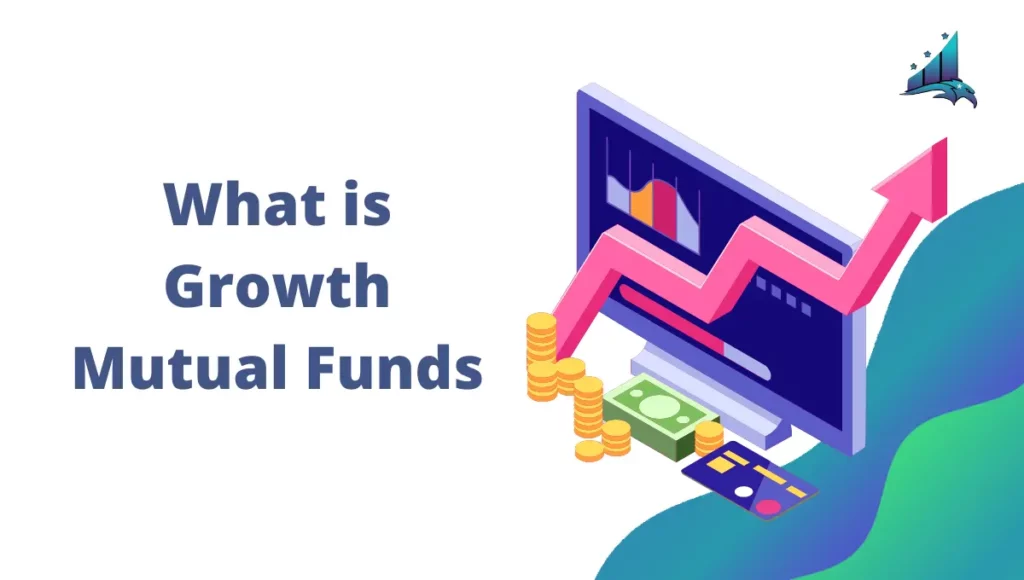Table of Contents
ToggleWhen investing in mutual funds, you have two plans: growth funds or dividend funds. A growth mutual fund mostly invests in young, promising companies that have the potential to provide high returns on your investments.
Do you want to learn more about growth mutual funds, including their types, functions, and advantages? This article is just for you. Keep reading.
Growth Mutual Funds - Definition:
A growth fund is a type of mutual fund that invests in stocks of companies that are predicted to grow more rapidly than the overall stock market. Capital appreciation is the main objective of growth funds.
They do not attempt to invest in stocks of firms with high dividend distributions, nor do they seek value stocks – companies with relatively unexplored potential.
Growth funds can provide investors with massive returns in a bullish market. However, they could experience losses when the market is bearish. The risk associated with growth funds is, therefore, quite high.
How Do Growth Mutual Funds Work?
Growth mutual funds invest in stocks of developing firms to provide investors with large profits. These companies use the money they make to continue conducting research, developing new products, and growing their operations.
Here’s an example to help you grasp the situation:
If you buy 100 units of stock for Rs. 20, your initial investment would be Rs. 2,000. After a year, you choose to sell these 100-unit shares for Rs. 30 (each unit). The difference of Rs. 1,000 represents your growth stock’s capital gain.
This is how growth stock funds work.
How to Invest in Growth Mutual Funds?
Investing in these funds is simple. Here are some recommendations:
AMCs (Asset Management Companies) or brokers are two ways you can invest in them directly. Both regular and direct plans are offered for these funds.
To make the best decision with a direct plan, you must be well-versed in the stock market. Before selecting a fund, you should look at its return history, expense ratio, and other details.
On the other hand, regular plans are ideal if you need more knowledge and want to avoid researching and monitoring a fund. In this case, fund managers are in charge of all these actions.
Advantages of Investing in Growth Mutual Funds:
Risk Factor:
The fund is very risky; thus, only investors willing to take on many risks can invest in it. However, the profits are good once you invest in them.
Unstable Fund:
If you invest in growth stocks, be prepared for market volatility. Because stocks are market-linked financial assets, they frequently rise and fall in value.
High Returns:
Many experts swear by the fund’s capital appreciation feature, which is why it is popular with investors. Because experienced fund managers select all stocks, high returns are assured.
Expert Management:
The selection of growth stocks is a delicate task. Knowledgeable money managers recognize these stocks. The managers will make decisions on purchasing and selling.
Diversification:
A growth fund portfolio consists of various equities from quick-growing businesses, giving you the advantage of diversification. This helps to limit volatility to some extent.
Commitment:
Growth funds demand a long-term investment commitment that may last between 5 to 10 years.
No Dividend:
The fund only focuses on capital growth; it does not pay dividends.
Reinvestment:
In growth funds, the money is reinvested in the scheme rather than refunded so investors can earn more.
Disadvantages of Investing in Growth Mutual Funds:
High Risks:
Growth funds carry more risk than other types of investments. Due to their high volatility, they frequently fall more quickly when the market is in a bear phase. They do function more effectively during a bull phase.
Long Waiting Time:
Most growth mutual funds don’t provide excellent returns in the near future. You will need to wait longer, say 10-15 years, to see real results. Therefore, younger investors are more likely to benefit from growth funds than older investors.
No Guaranteed Returns:
Growth funds frequently employ active management. In other words, they need a fund manager’s involvement considerably more. The success of the growth fund will depend on the fund manager’s abilities.
You should be able to receive returns that are higher than average if the fund managers are skilled at identifying stocks with potential. You may not obtain the expected results if they aren’t capable enough.
Higher Costs:
Costs may be on the higher side because growth funds are actively managed. Due to the significant costs associated with hiring skilled fund managers and conducting extensive research before purchasing equities, these funds typically have higher expense ratios.
High Price-to-Earnings Ratios:
Growth capital funds invest in potential firms. One difficulty with that approach is that others may share it. As a result, some companies may be costly and have high price-earning (P/E) ratios.
Things to Consider Before Investing in Growth Mutual Funds:
Below are a few key recommendations for investing in high-growth funds.
Prone to Risk:
Mutual funds investing in growth stocks are very risky.
Prone to Depreciation:
Depending on market demand, such funds may occasionally see a sharp decrease, which will reduce the stock’s value.
No Dividend Payments:
You might not receive consistent returns from dividends, interest, bonuses, etc., from such funds.
Not a Suitable Investment for a Short-Term Horizon:
These funds are not right for you if you want quick gains.
Fund Manager:
The skill of the fund manager determines the performance of growth mutual funds. Before investing, look into the fund manager’s track record and experience handling growth funds.
Conclusion:
A growth stock mutual fund invests in companies with high growth potential. These stocks function better when the economy is booming. Growth equity funds frequently include technology stocks.
Retired investors often prefer value stock funds, which generate income through dividends. You will receive tremendous returns when you invest in growth funds in India.
However, you must be prepared to be patient with these funds and have a long-term investment strategy. Since these funds are so volatile, you must also be ready for any risk.
